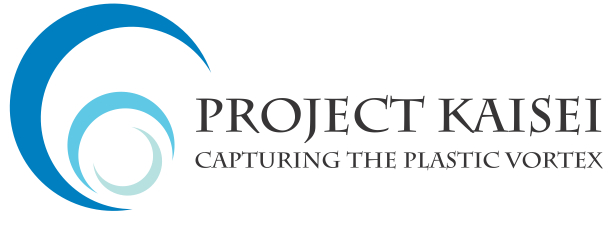The Impact of our Research Expeditions
“Solving a problem starts with knowing that you have one. Project Kaisei vividly shows how discarded plastics are clogging the ocean, causing a major problem for the planet’s vital “blue heart”, entangling marine life and insidiously killing as it accumulates in the food chain, from tiny plankton to great whales.
Best of all, the mission highlights hope with ideas for positive action. ”
- Significant benefit to society in terms of education, large scale environmental awareness, and increased knowledge of the importance of our ocean.
- Valid information on the scope and status of the North Pacific Gyre to help focus education efforts and research to address marine debris at sea.
- Education on environmental and health issues that result from the research conducted by Project Kaisei.
- Awareness building about restoring the health of marine life and fisheries.
- Possible new solutions for the debris problem: test treatment technologies and processes, possible clean-up strategies within the gyre, improved land-based recycling programs, improved legislation (land/sea).
- Increased awareness of individual responsibility – the products which we consume and how we handle those wastes.
Scientific Testing During the Mission
Project Kaisei worked with leading scientists and technologies in ocean research. Teams of scientists and researchers participating in the expedition were supported by several research institutions and agencies, including the Scripps Institution of Oceanography. Weexamined issues including the effects on marine life, microorganisms, new satellite imagery studies and also marine mammal research with low frequency sound detection devices. Many of these are world-first studies with regards to marine debris in this area of ocean.
Study on Toxins and the Food Chain
It has been estimated that the composition of marine litter globally now consists of 60-80% plastic polymers and in some areas it elevates to numbers as high as 90 – 95% (1, 2). Marine biologists, ocean lovers, and water sports enthusiasts Andrea Neal, Ph.D. (Ocean Futures Society) and Joel Paschal (Sea of Change and Algalita), have joined Project Kaisei to help further our understanding of the scope and impact that plastic marine pollution has on our oceanic environments. With the amount of plastic pollution in our environment continuing to increase, we are not only concerned about the quantity of this prevalent pollutant but the biological impacts that these synthetic organic polymers may have on aquatic species as well as ourselves. We know that Persistent Organic Pollutants (POPs) like PCB’s (polychlorinated biphenyl’s), PAH’s (polycyclic aromatic hydrocarbons) and DDT (dichloro-diphenyl-trichloroethane) are attracted to synthetic polymers which make up the plastic debris at sea, and create a sink for these harmful toxins in aquatic environments.

